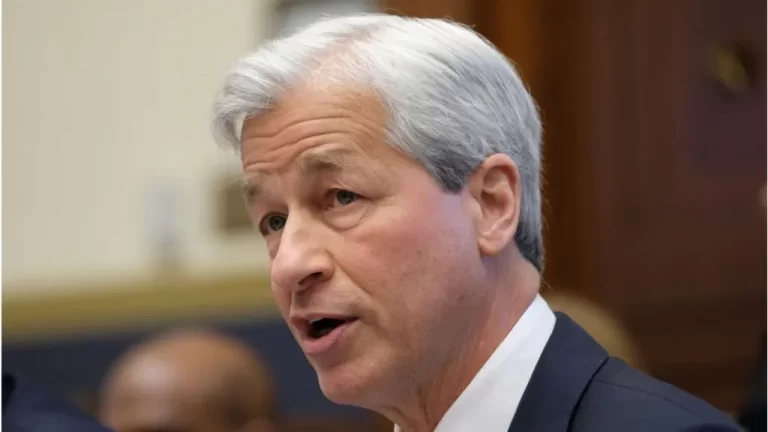The boss of one of the world's biggest banks has warned US interest rates could climb to 8%.
Jamie Dimon, the head of JPMorgan Chase, said his bank has prepared for interest rates to jump because of “persistent inflationary pressures”. Central banks around the world have been busy raising rates in a bid to dampen rising prices.
But with price rises in some countries now gradually slowing, central banks may begin to lower interest rates.
In his annual letter to shareholders, Mr Dimon said that the bank was ready for a “very broad range” of rates, from 2% to 8% or even higher, potentially pushed up because of high government spending and the need to curb price rises.
Mr Dimon's comments come as US interest rates rest in the range of 5.25% to 5.5% – higher than they have been for more than 20 years.
By making borrowing more expensive, higher interest rates encourage saving and reduce borrowing for home purchases and business investments, cooling the economy and easing the pressures pushing up prices.
The overwhelming expectation is that interest rates will fall in 2024, with markets pricing in two quarter-point rate cuts by the US Federal Reserve this year.
“All of the following factors appear to be inflationary: ongoing fiscal spending, remilitarization of the world, restructuring of global trade, capital needs of the new green economy, and possibly higher energy costs,” Mr Dimon wrote.
The US Federal Reserve will make its next decision on which way interest rates will move at the end of the month. The expectation is that it will hold rates at the current level with the first cut potentially coming in June. The European Central Bank is also expected to make its first cut in June.
On Tuesday, some analysts questioned, however, whether rate cuts lie in store for the summer in the US.
The latest US inflation figures, are due to be published on Wednesday, with the CPI measure of inflation expected to rise to 3.4% year-on-year, up from 3.2% in February and perhaps making it harder to justify rate cuts.
In a speech delivered at Stanford University at the beginning of April, the Federal Reserve chair Jay Powell said: “If the economy evolves broadly as we expect, most Federal Open Market Committee participants see it as likely to be appropriate to begin lowering the policy rate at some point this year.”
Mr Dimon has been chief executive of JPMorgan Chase since the end of 2005. One year later he also became chairman and president of the bank. He is the longest-serving chief executive of a major investment bank.
In his letter to shareholders, he also said that he sees the United States as being at a “pivotal moment” in the midst of global uncertainty.


